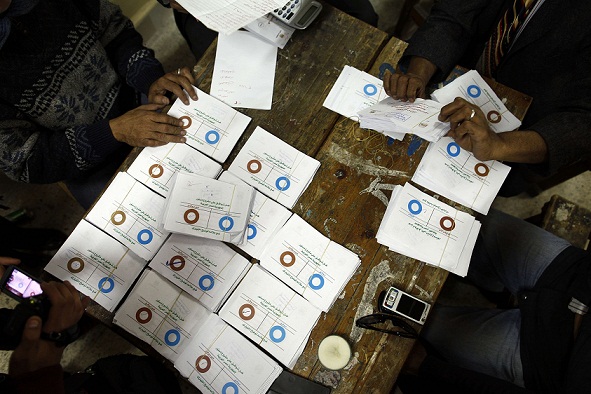
(AFP Photos)
The latest austerity policies issued by the Egyptian government were met Sunday with harsh criticism, and suggestions for alternatives from the Al -Tayar Al -Sha’aby (Popular Current) coalition.
The group rejected the implementation of the policies, calling on the government to instead reassess their budget plan, and warning against possible social and political backlash.
The government increased prices for all petroleum products Saturday morning after energy subsidies were cut. A higher tax of 50% on cigarettes, 200% on beer and 150% on other alcoholic beverages have also been implemented on the back of the energy subsidy cuts. Amidst a national outcry, prices of food products are likely to increase in the near future.
“The country is suffering the consequences of the austerity measures of the new budget plan,” the party said. “There is almost no difference between the new budget and the previous economic plans engineered by the corrupt regime of former president Hosni Mubarak.”
The coalition, which supported the 30 June protests which preceded the ouster of former president Mohamed Morsi last summer, asserted that “the current economic policies show that the economic sector of the country has not been affected by any of the revolutions that the country witnessed.”
This, the coalition added, will leave normal citizens suffering the unprecedented raising prices of fuel and goods.
The coalition said although many attempts had been made to offer economic recommendations to the government in 2013 and in early 2014, no serious action was taken by the government.
The coalition said: “We aimed to provide solutions where the rights of lower-income groups are preserved and a clear economic path to guarantee social justice and freedom is stressed.”
In its Sunday statement the coalition provided suggestions for the government to limit the consequences of the tough budget decisions it has had to make.
Recommendations include adjusting special funds, reducing government expenditure, reconsidering the method of calculating energy subsidies, along with applying progressive taxation.
The coalition also emphasised the need to resolve the issue of land sold under Mubarak for less than market value, and the abolition of some business laws which allowed loopholes for corruption.
The statement closed by emphasising the importance of applying the aforementioned steps to “ease the damage that the former corrupt governments did.” It also called upon President Abdel Fattah Al-Sisi to protect the rights of the impoverished classes in the country.


